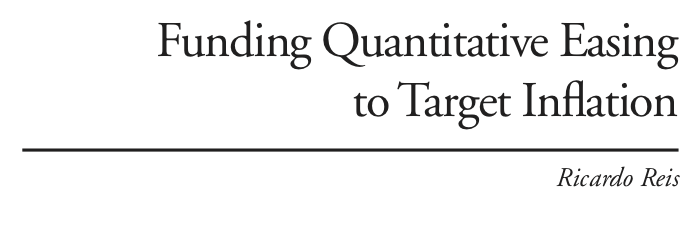
** MMT is the new supply-side economics
Forty years ago, some economists started from an uncontroversial (but important) result: a lower tax rate raises the tax base, so revenues won't fall as much. But then they ran with it, predicting tax rate cuts could raise revenues.
1/13
Forty years ago, some economists started from an uncontroversial (but important) result: a lower tax rate raises the tax base, so revenues won't fall as much. But then they ran with it, predicting tax rate cuts could raise revenues.
1/13
The 80s supply-siders went to the limit and came up with a motto: lower taxes will lower deficits as a norm, not an exception. Many economists shouted this was backwards. It was an implausible limit case. Textbooks called them "charlatans and cranks" or "silly".
2/13
2/13
In 80s debates, supply-siders would often fall back to "you don't understand me", repeating "Laffer curve!" endlessly, or stating vacuous accounting identities about how the government collect taxes. Their extreme prediction was repeatedly proven wrong by theory and data.
3/13
3/13
But they had popular hero figures (Laffer, Moore), and an eager political audience that would use any argument to cut taxes. Eventually, they inspired new good research, and helped in swinging the pendulum of policy debates to include some valid supply considerations.
4/13
4/13
Yet, supply-side economic ideas also contributed to a massive rise in US public debt in the last 40 years. Right-wing governments became as prone to have large public deficits as left-wing governments, in the pursuit of cuts in taxes.
5/13
5/13
MMT starts from a likewise correct result in monetary macro: as central banks now satiate the demand for reserves, govt spending can be paid for by issuing CB reserves. This increase in M0 per se has no impact on interest rates, inflation, nor does it crowd out investment.
6/13
6/13
The (approximate) irrelevance of the size of the central bank's balance sheet has only been true post-QE. So it may not be as widely understood. But it is still standard: a boring economist laid it out in Jackson Hole back in 2016 with no controversy.
bit.ly/3dwmN3I
7/13
bit.ly/3dwmN3I
7/13
But MMT ran with it: central banks could "print money" to pay for any amount of spending. At the limit, they had a motto: there is no constraint on how much the government can spend. This is an absurd limit, wrong and backwards: CB reserves are just another form of borrowing
8/13
8/13
Some have called MMT "merely a rethorical exercise" (@albertobisin). In debates, MMTers say "you don't understand me", endlessly repeat "functional finance!" or state vacuous accounting identities on the flows between CB, Treasury and markets.
bit.ly/3bkP7U4
9/13
bit.ly/3bkP7U4
9/13
MMT's extreme predictions have been repeatedly proven wrong by theory and data (just read some Latin American history). But they have popular hero figures (Kelton, Mosler) and an eager political audience in the left that will use any argument for raising public spending.
10/13
10/13
MMT controversies may well inspire new good research on government budget limits. It is helping to swing the pendulum of policy debates towards government spending programs and fiscal activism. Yet, it made it fashionable to irresponsibly ridicule worries about public debt.
11/13
11/13
I learned from political scientists that the far left and the far right are closer to each other than to the centre, united by a disregard for moderation. In economic policy, so are left-wing MMT and right-wing old supply-side econ. United by a disregard for fiscal prudence
12/13
12/13
Today, supply side economics is respectable, because it is no longer used in its extreme (wrong) 1980s form. Maybe the same will happen with MMT. Hopefully under a more accurate name.
(I've used new fiscal activism and new-style central banking but they never caught on.)
13/13
(I've used new fiscal activism and new-style central banking but they never caught on.)
13/13
• • •
Missing some Tweet in this thread? You can try to
force a refresh




